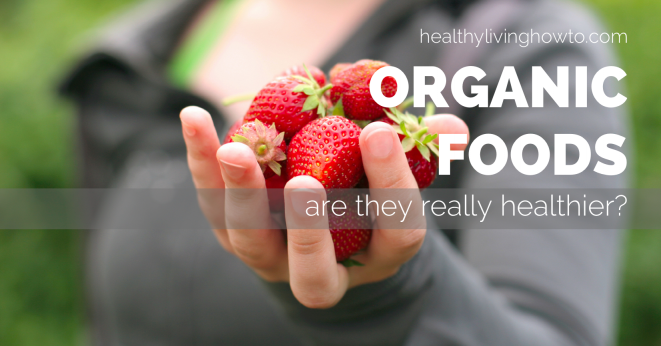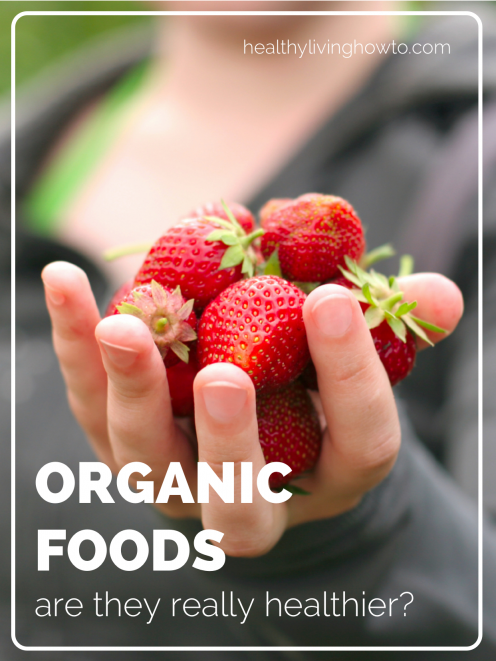Are organic foods really healthier than their conventional counterparts? That's the question Healthy Living How To reader, Linda, sent to me after her daughter came home to share what she learned in 11th grade health class.
Question
I'm really disturbed by something my daughter has learned in her 11th grade health class at school. Her teacher told the class that organic foods are the same as everything else, they are just priced higher! Of course I wanted to debate, but my daughter came back with “why would the teacher lie?” And not only that she began questioning me about buying organic. Tough one for me to explain! I'm not fully informed on all that makes up “organic” but I really need to be so I can educate my family myself! If you can share any information why organic foods are healthier that would be so wonderful!
Answer
Take a deep breath….we went through some of that as well last year. My son brought a can of my organic coconut milk to school for a health project and the teacher used it as an example of unhealthy saturated fat. I wanted to fire off an e-mail to the teacher and say, do you know what both myself and my husband do for a living?! Of course I didn't, it wouldn't be very humble of me, but I wanted to. You have to remember, in public schools, health teachers have a curriculum to teach that is set by state and federal guidelines. These health teachers are not nutrition experts, but simply teaching the material they are given to teach.
With that being said, there was a recent review, published in the Annals of Internal Medicine, that the media quickly picked up on. The review reported organic foods may not be much healthier or more nutritious than their conventional counterparts. This isn't really news when it comes to the nutrition aspect, as the evidence whether organic foods are more “nutritious” is unclear. Some studies suggest organically grown vegetables and fruits may contain higher levels of vitamins and minerals while others have found no difference.
Whether organic food is more nutritious or not, isn't really the issue at hand, it is the impact these foods have on our current and future health.
The way I see it, the health benefits derived from organic food is:
- Less exposure to pesticides and other toxins
- Often times it is fresher without preservatives
- Organic farming is better for our environment
- Organically raised animals are not given antibiotics, growth hormones or fed animal byproducts
It is interesting to note, the aforementioned review actually concluded that not only was the pesticide content significantly lower in organic foods, exposure to antibiotic-resistant bacteria was as well. I would argue this makes organic foods healthier.
The reason I recommend and support organic is to avoid pesticides, herbicides, and genetically modified organisms. These are all toxins which are detrimental to our health.
Our body's toxic burden is the difference between what we are exposed to and how well our own natural detoxification system is working. The more exposure to toxins, whether from food, environment, or even the cosmetic products we use, the harder the body has to work to detoxify and excrete these substances. When metabolic waste from toxins builds up in our body, we get sick.
It is important to both enhance our body's natural ability to detoxify and get rid of the waste, while at the same time, minimize our exposure to toxins. This is imperative for excellent health, as many of today's modern diseases are related to toxic overload.
To learn more about the pesticide content of fruits & vegetables:
EWG's 2013 Shopper's Guide to Pesticides in Produce
To learn more about GMOs:
Seeds of Deception
To learn more about the commercial food industry:
Food Inc.

